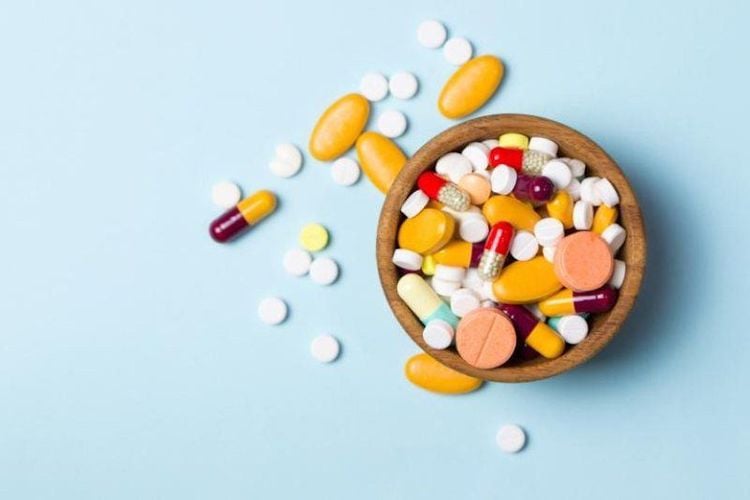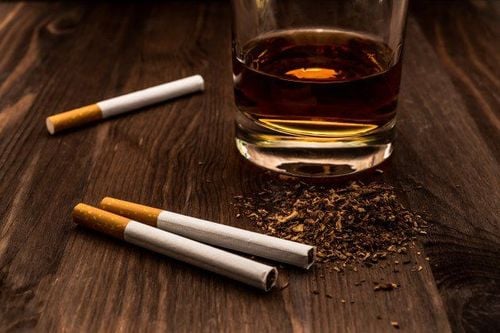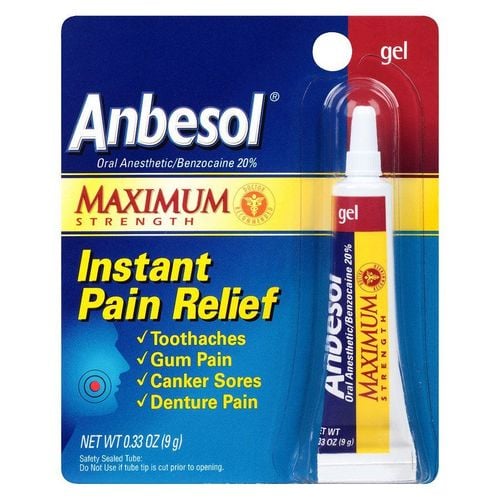There are several reasons why you may experience dry mouth upon waking. Sleeping habits, medications you are taking, or an underlying medical condition could be contributing factors. If the dry mouth is severe and persistent, it is advisable to consult a doctor. The doctor will perform an examination to identify the cause and recommend an appropriate treatment plan based on your health condition.
1. What is dry mouth?
Saliva plays several important roles in maintaining oral health. It not only helps wash away food particles from the surface of the teeth, promoting oral hygiene, but also contains enzymes that combat bacteria and prevent bad breath. Additionally, saliva contains proteins and minerals that help protect tooth enamel, prevent cavities, and support gum health.
Dry mouth occurs when the salivary glands do not produce enough saliva. This leads to discomfort, dry mucous membranes in the mouth, and a burning sensation. Furthermore, dry mouth can cause symptoms such as:
- Sore throat ranging from mild to severe, dry nasal passages, and dry airways.
- Difficulty speaking, swallowing, and hoarseness.
Loss of taste, difficulty chewing and swallowing, which can lead to malnutrition. Individuals with dry mouth are more prone to oral health issues such as cavities, gingivitis, periodontal disease,... Additionally, chronic dry mouth can lead to psychological effects such as anxiety, stress, and depression.
2.Causes of dry mouth when waking up
There are many different causes of dry mouth, some of which are temporary, while others can lead to long-term dryness. Below are the 9 most common causes of dry mouth when waking up.
2.1. Mouth breathing
Mouth breathing can be a cause of dry mouth upon waking. Mouth breathing during sleep can be due to habits, snoring, nasal congestion, or more serious disorders such as obstructive sleep apnea (OSA).
A study conducted in 2006 involving 1,000 adults with symptoms of dry mouth upon waking showed that 16.4% of participants had snoring issues, while 31.4% had obstructive sleep apnea. Those with severe obstructive sleep apnea experienced more severe dry mouth compared to those with mild cases. Therefore, if you experience frequent and severe dry mouth upon waking, it is important to consult a doctor to identify the underlying cause and receive timely treatment.
2.2. Use of treatment medications.
Many medications have side effects that can cause dry mouth, especially those used to treat diseases such as:
- Hypertension
- Gastrointestinal disorders (diarrhea, nausea, vomiting, overactive bladder)
- Mental health conditions (anxiety, depression)
- Allergic reactions, neuropathic pain, etc.
You may experience persistent dry mouth if you frequently use these medications. The risk of dry mouth is also higher if you are taking multiple medications at the same time. To minimize the risk of dry mouth caused by medication, it is advisable to consult your doctor about the timing of your medications to reduce dry mouth symptoms, or to switch to medications that do not have dry mouth as a side effect.
There are many different causes of dry mouth, some cause temporary dry mouth, some cause long term dry mouth. Here are the 9 most common causes of dry mouth upon waking.

2.3. Dry mouth due to aging.
The risk of dry mouth increases with age. The prevalence of dry mouth in individuals over 65 years old is 30%, while the rate rises to 40% in those over 80 years old.
Aging itself does not directly cause dry mouth. The higher prevalence of dry mouth in the elderly may be due to the use of multiple medications to treat chronic conditions. Several common age-related diseases, such as diabetes, Alzheimer's disease, and Parkinson's disease,... can also contribute to dry mouth.
2.4. Dry mouth due to diabetes.
Dry mouth is a common symptom in diabetic patients. It can be caused by dehydration or poorly controlled blood sugar levels. Dry mouth may also be a side effect of medications used to treat diabetes.
Diabetic patients experiencing persistent dry mouth should regularly monitor their blood sugar levels to make timely adjustments. Additionally, they should consult their doctor about possible adjustments in their treatment regimen to help alleviate dry mouth symptoms.
2.5. Dry mouth due to Alzheimer's disease.
Alzheimer's disease is a form of dementia caused by the damage and death of nerve cells. The loss of these cells leads to memory impairment, difficulty with communication, and an inability to perform complex tasks,...
Patients with Alzheimer's are at high risk of dry mouth due to their inability to drink water on their own or difficulty communicating, which prevents them from asking others for help in getting water. Dehydration can increase the risk of hospitalization for Alzheimer's patients. Therefore, if you are a caregiver for someone with Alzheimer's, it is important to encourage them to drink water regularly throughout the day.
2.6. Dry mouth due to Sjögren's syndrome.
Sjögren's syndrome is an autoimmune disorder of unknown cause that affects connective tissue and the glands near the mouth and eyes. Dry mouth is one of the hallmark symptoms of this condition. Other autoimmune diseases, such as rheumatoid arthritis or lupus, may also occur alongside Sjögren's syndrome.
Currently, there is no cure for the disease. Treatment primarily focuses on managing symptoms to improve the patient's comfort.
2.7. Dry mouth due to cancer treatment.
Cancer treatments for the head and neck, such as radiotherapy and chemotherapy, can damage the salivary glands, leading to long-term dry mouth. Dry mouth caused by cancer treatment can occur soon after the patient begins treatment or may develop months or even years later.
2.8. Dry mouth due to alcohol and tobacco
Alcohol is acidic and can cause dehydration, leading to dry mouth upon waking. You may also experience dry mouth when using mouthwash containing alcohol. Meanwhile, tobacco can alter the rate of saliva production, causing dry mouth and other harmful effects on oral health.
A 2010 study conducted on 200 individuals, with 100 smokers and 100 non-smokers, showed that 39% of smokers experienced dry mouth, compared to just 12% of non-smokers. Additionally, smokers were at a higher risk of tooth decay, gum disease, and tooth mobility…

2.9. Dry mouth due to narcotic use.
Narcotics such as ecstasy (MDMA), heroin, and methamphetamine can cause dry mouth. Similar to tobacco, these substances can affect salivation in the mouth. Narcotic use also severely impacts oral health, with methamphetamine in particular causing rapid tooth decay.
3. Methods to reduce dry mouth upon waking.
You can apply the following methods to help reduce dry mouth upon waking. These methods can be effective even when the underlying cause of dry mouth cannot be treated directly:
- Chew sugar-free gum
- Suck on sugar-free candies
- Drink plenty of water
- Chew food thoroughly before swallowing
- Limit dry, spicy, and salty foods
- Limit alcohol and caffeinated beverages
- Use a humidifier in the bedroom
If dry mouth is severe, a doctor may recommend using products that stimulate saliva production and reduce dry mouth, such as special toothpaste and mouthwash, nasal and oral sprays, or oral medications…
Dry mouth increases the risk of oral diseases. Therefore, when experiencing dry mouth, you should enhance oral hygiene. Some methods to maintain oral health include:
- Brush your teeth twice daily with a soft-bristled toothbrush and a suitable toothpaste
- Floss daily
- Visit the dentist regularly for cleanings and check-ups
- Eat yogurt regularly to prevent yeast growth
- Rinse your mouth after using inhaled medications
- Properly control blood sugar levels for individuals with diabetes
There are many causes of dry mouth. Depending on the underlying cause, appropriate solutions can be found. If the patient has underlying conditions, they should visit a medical center for a thorough examination and appropriate treatment plan.
Please dial HOTLINE for more information or register for an appointment HERE. Download MyVinmec app to make appointments faster and to manage your bookings easily.
Reference source: healthline.com
To arrange an appointment, please call HOTLINE or make your reservation directly HERE. You may also download the MyVinmec app to schedule appointments faster and manage your reservations more conveniently.








